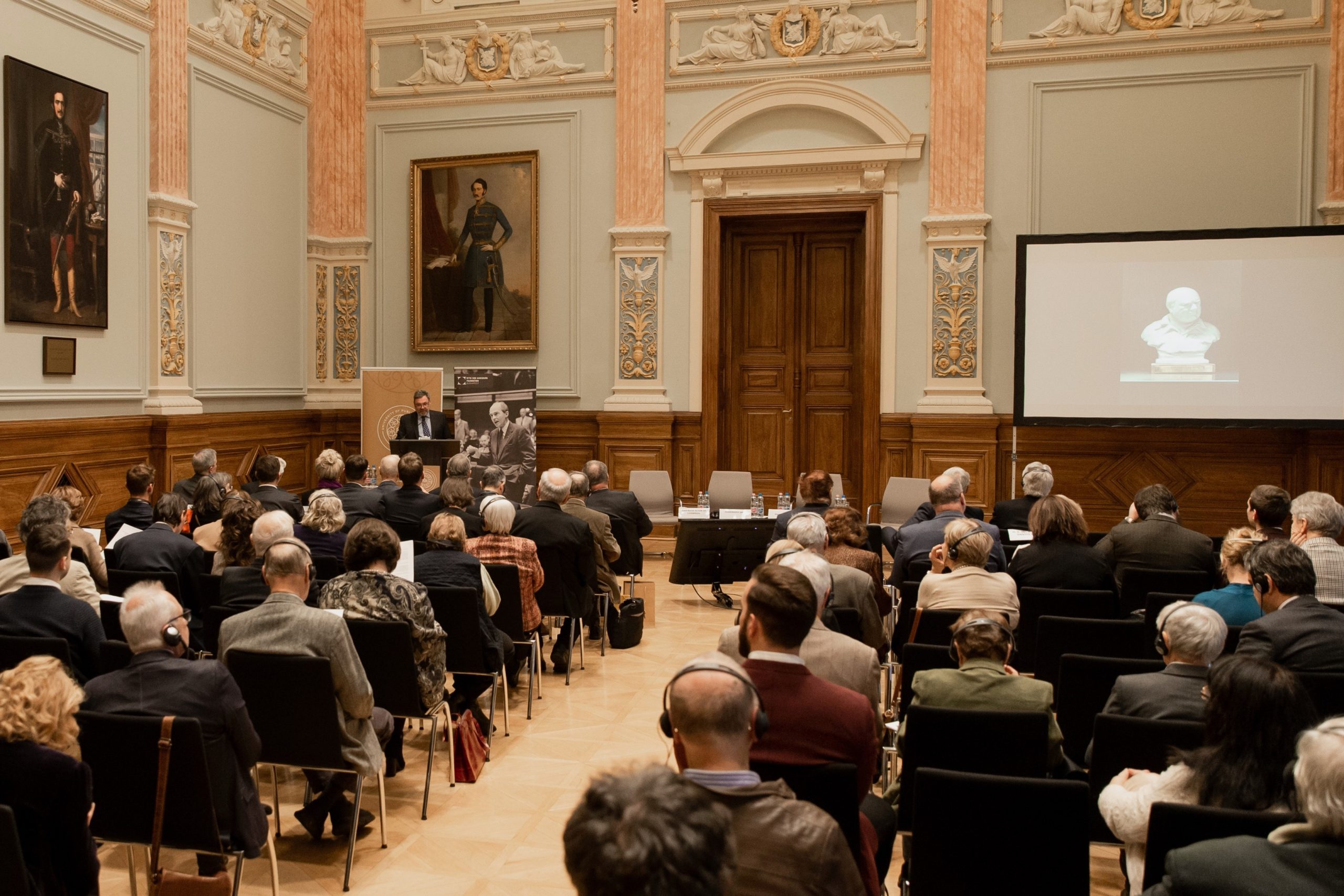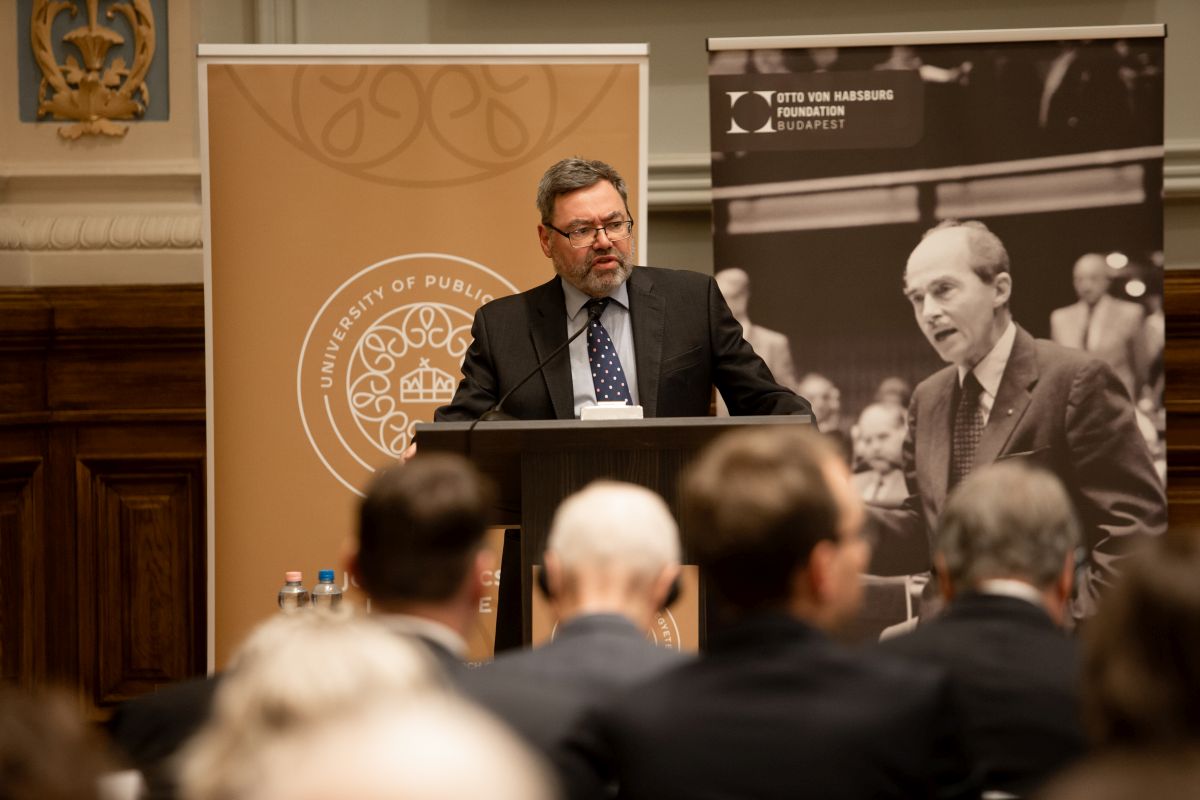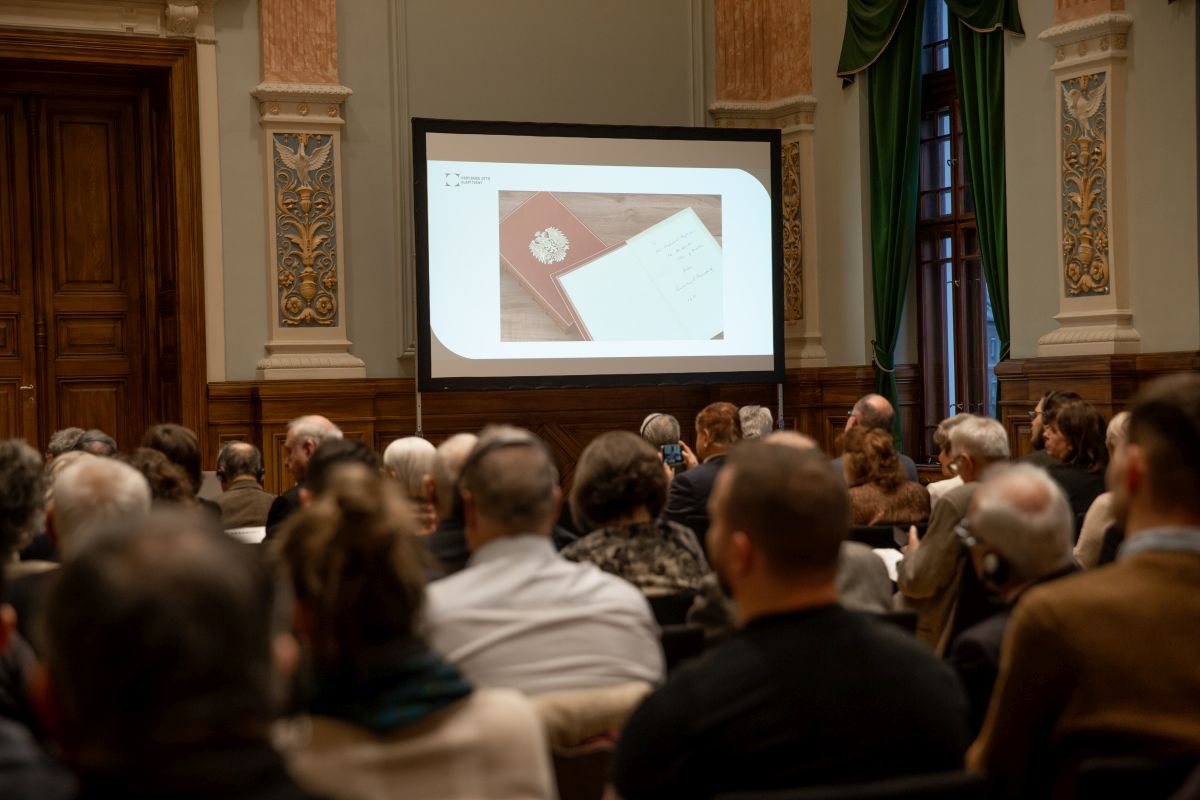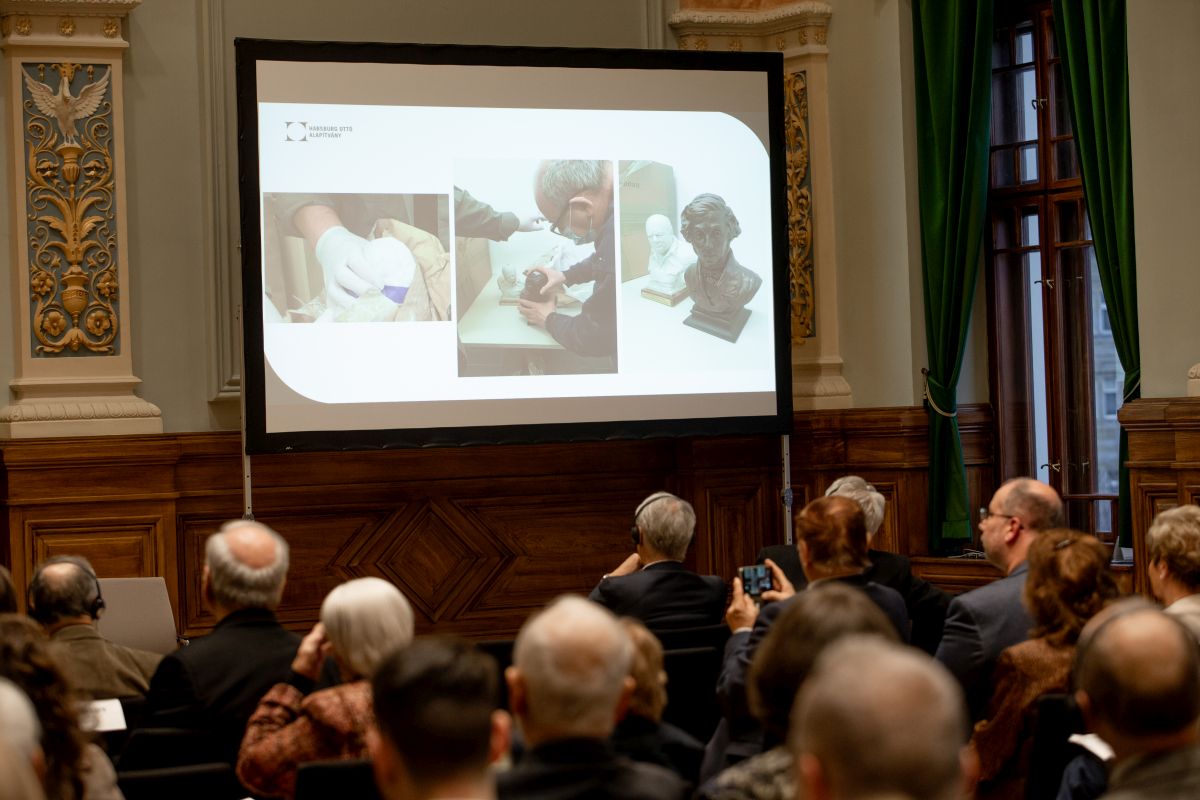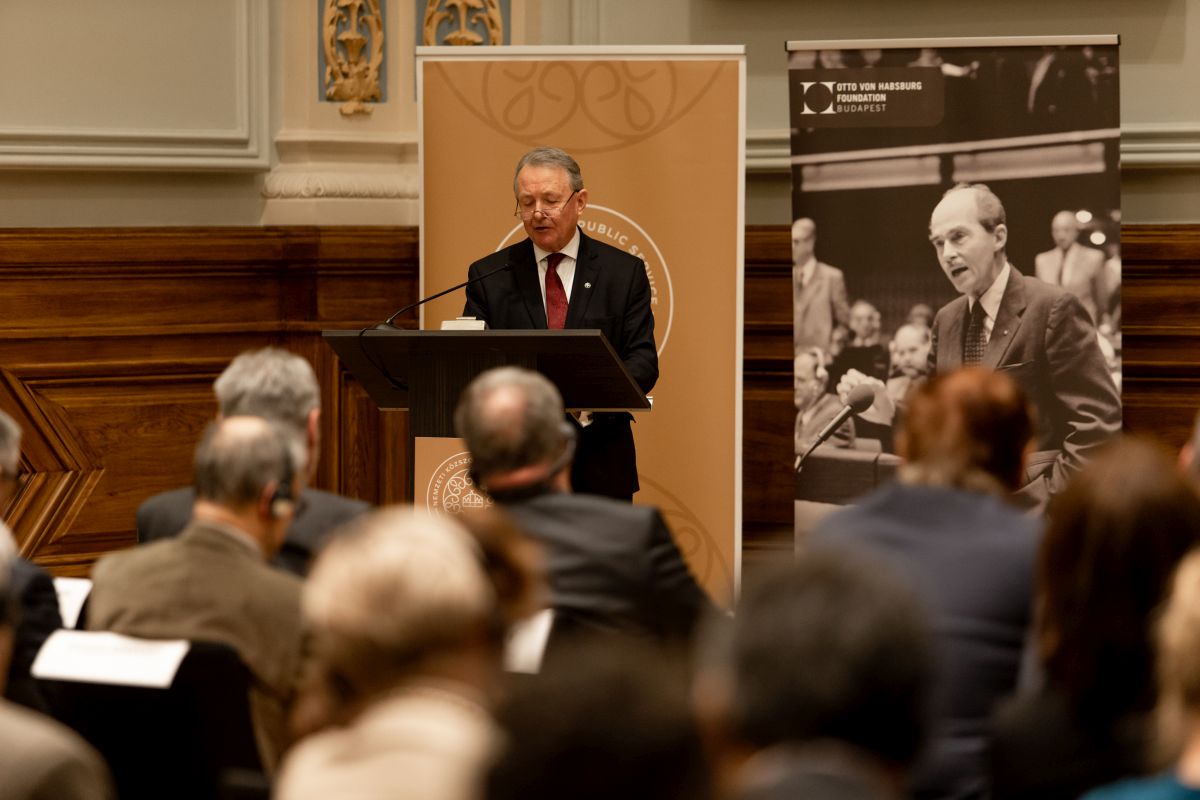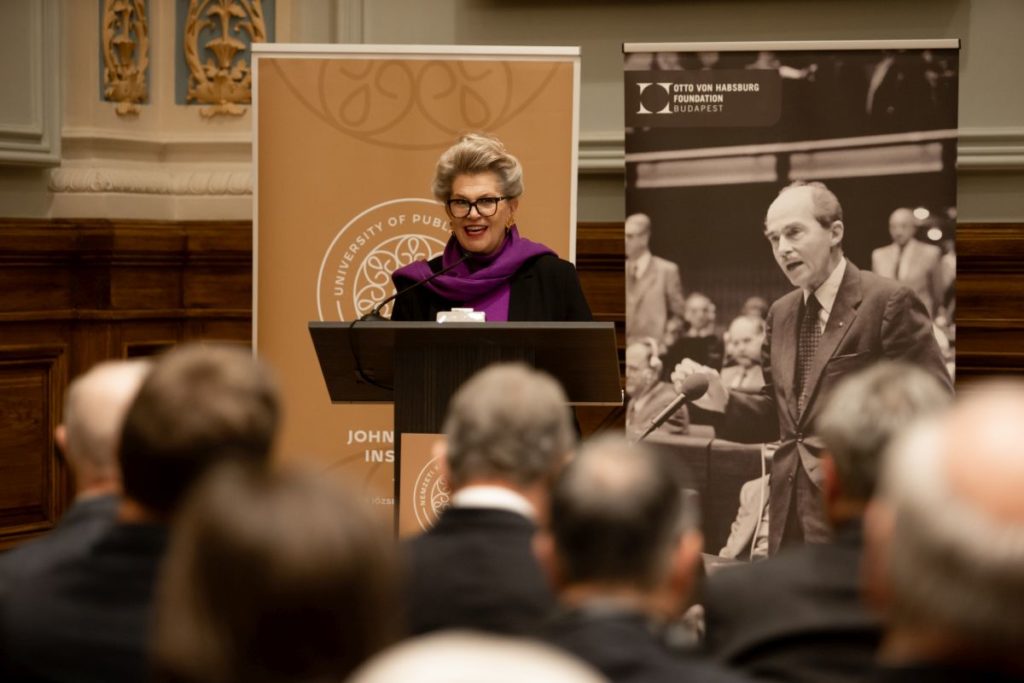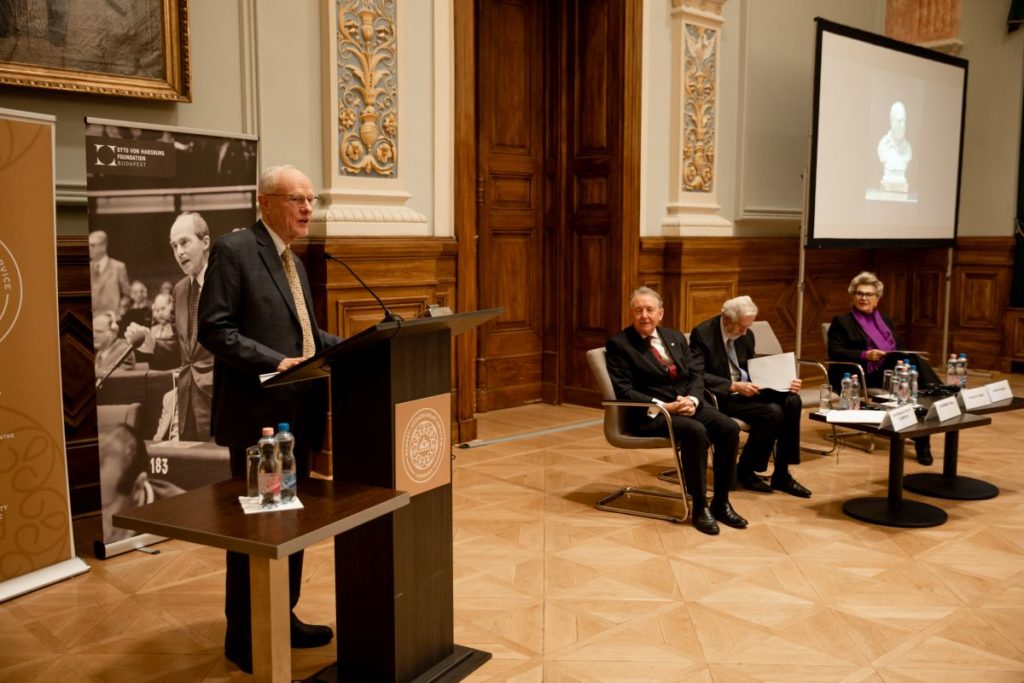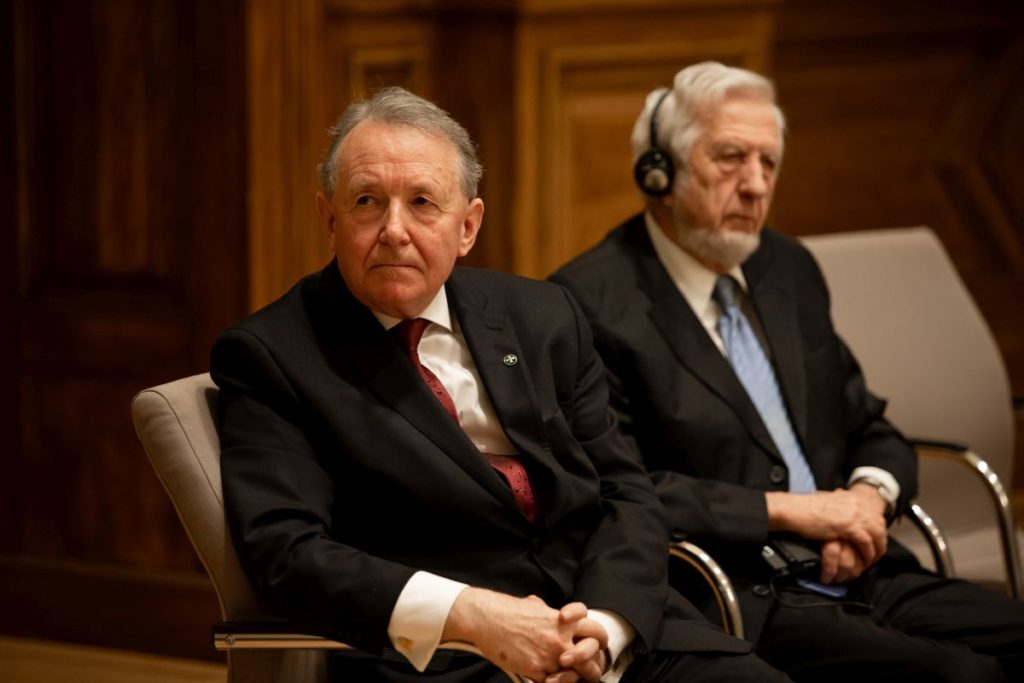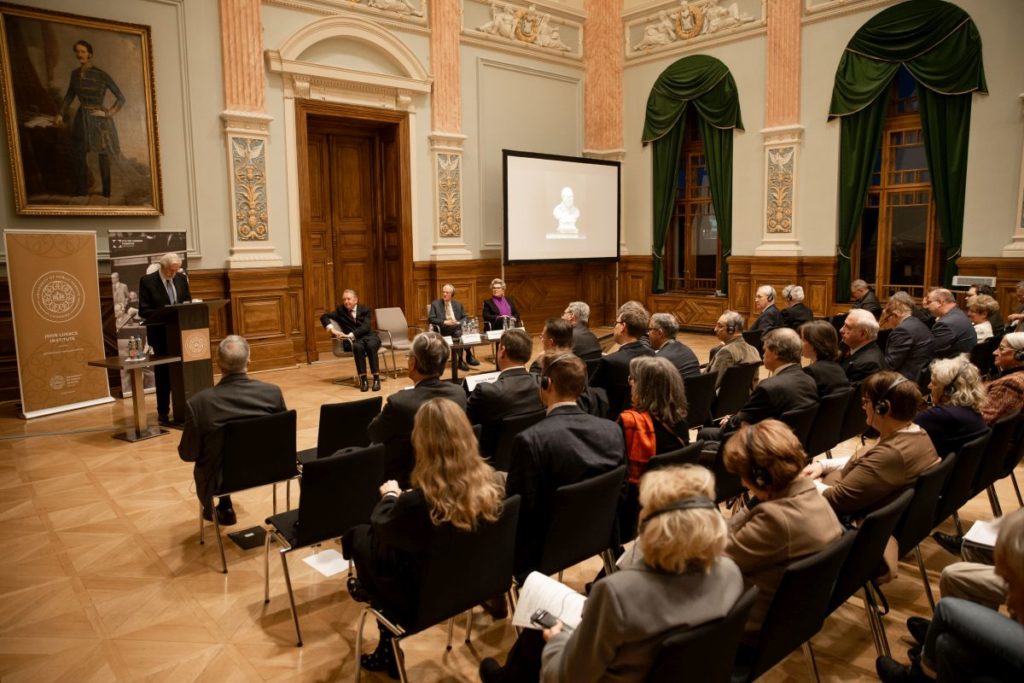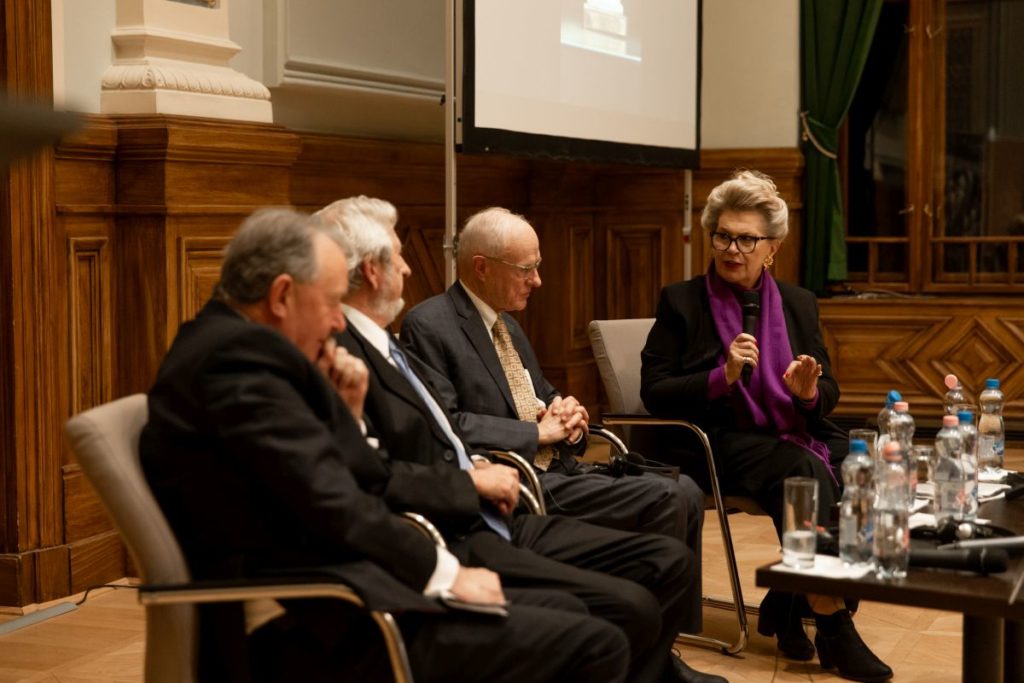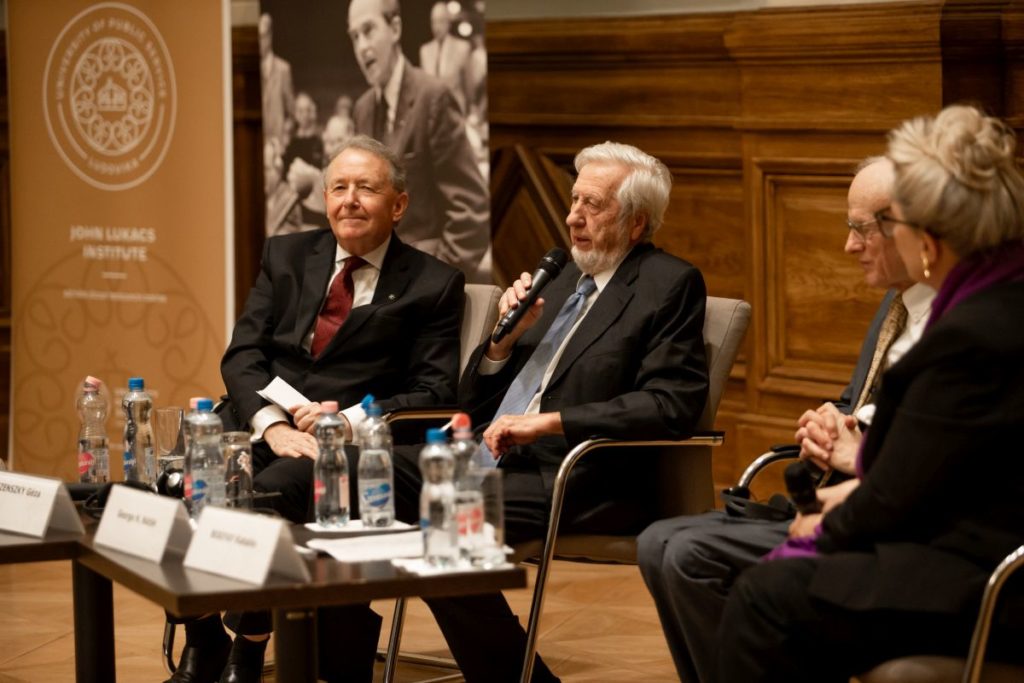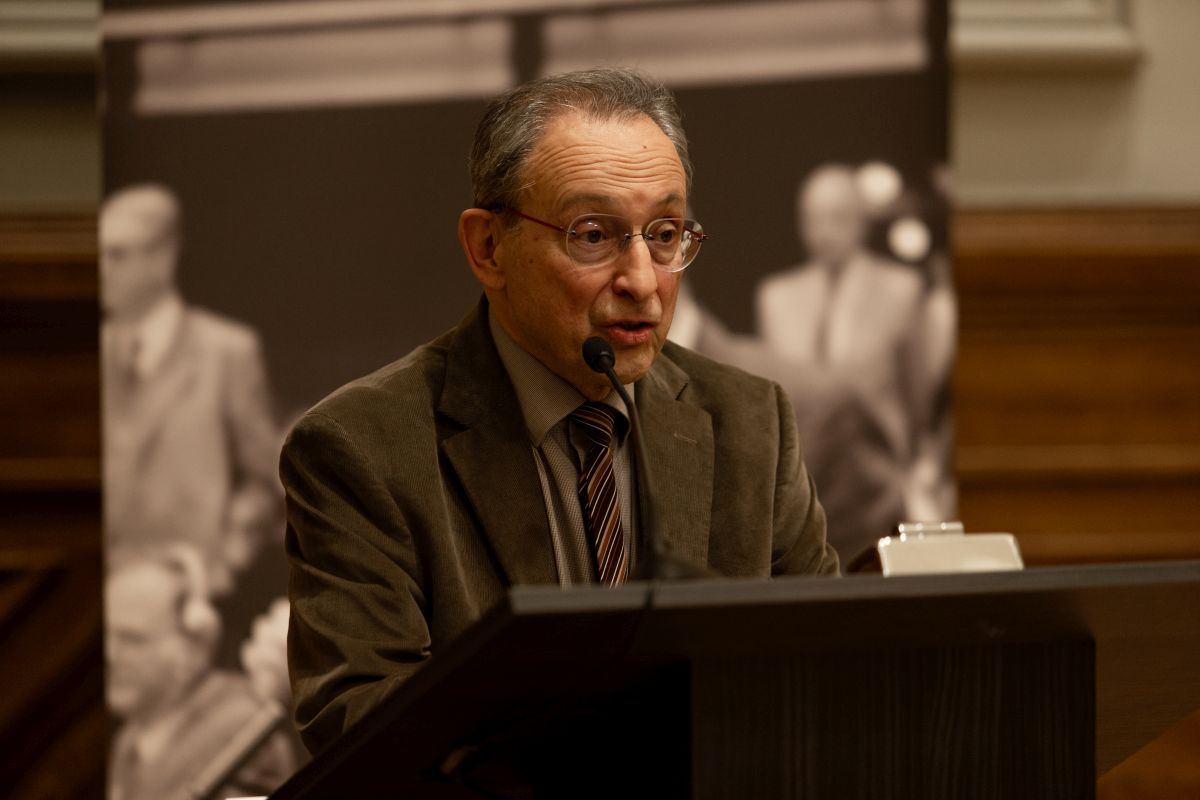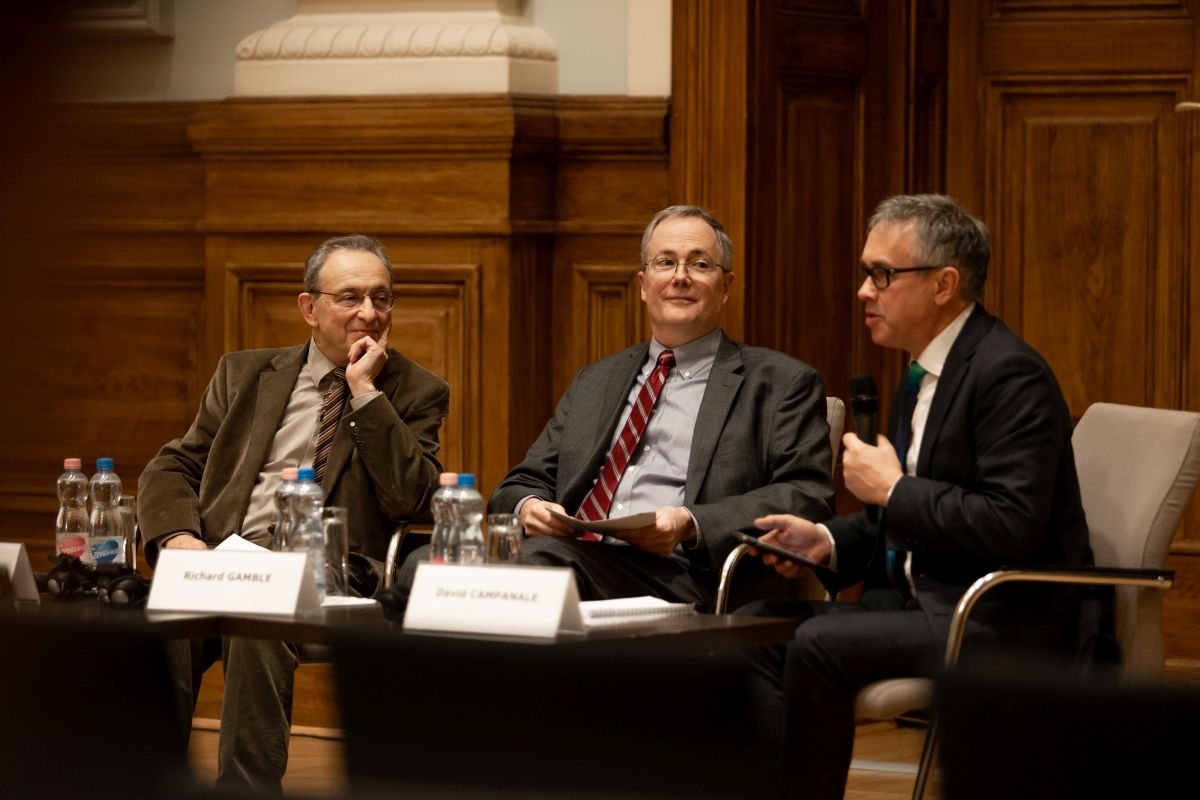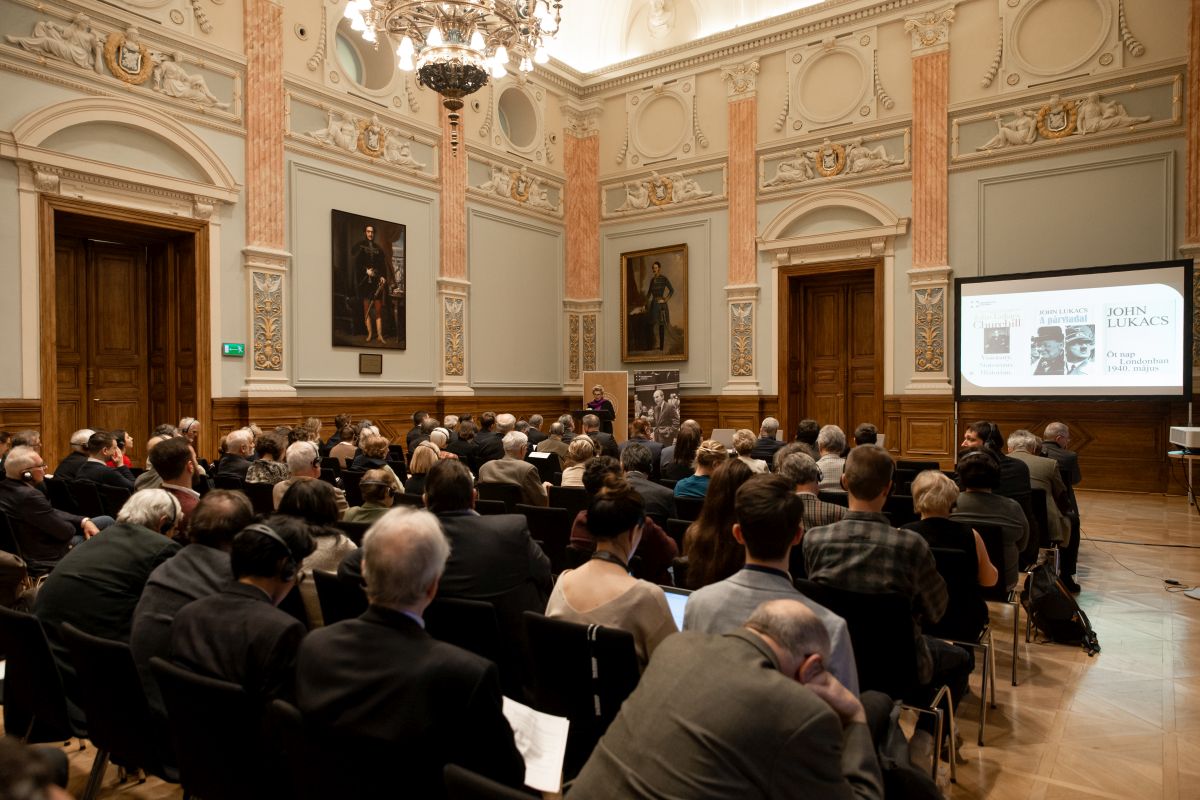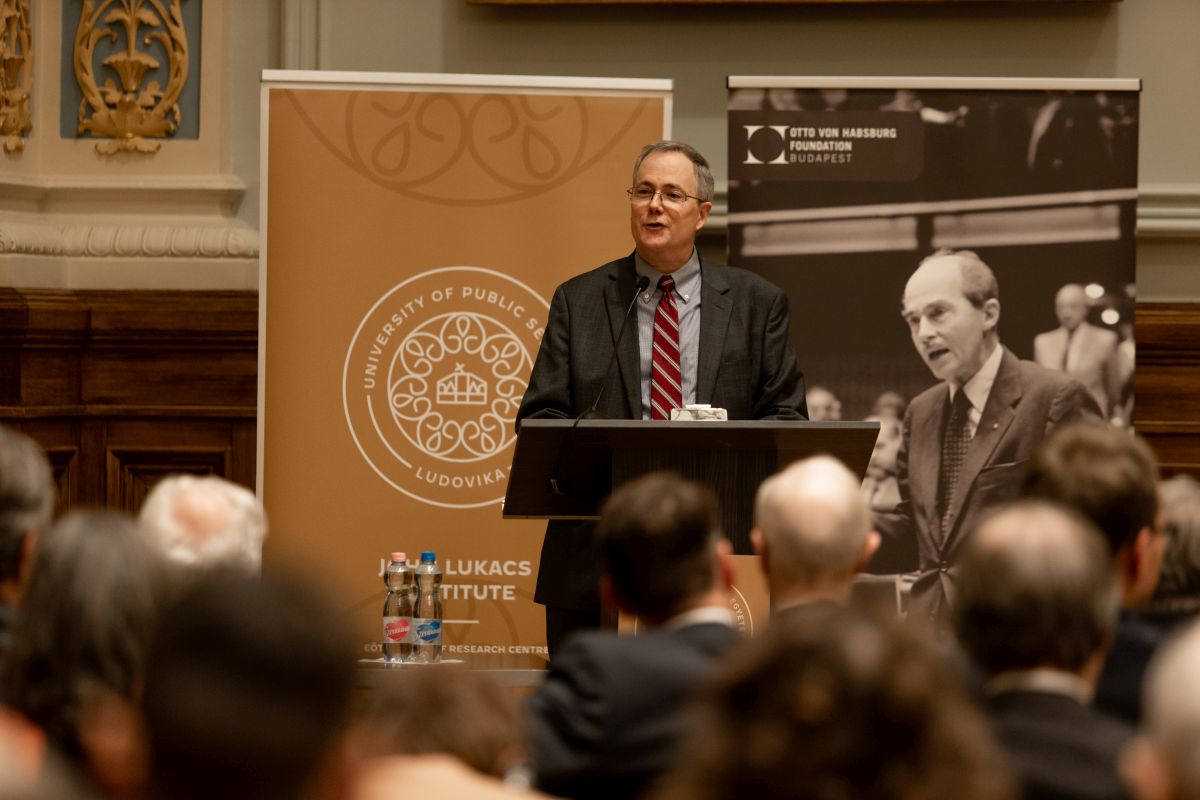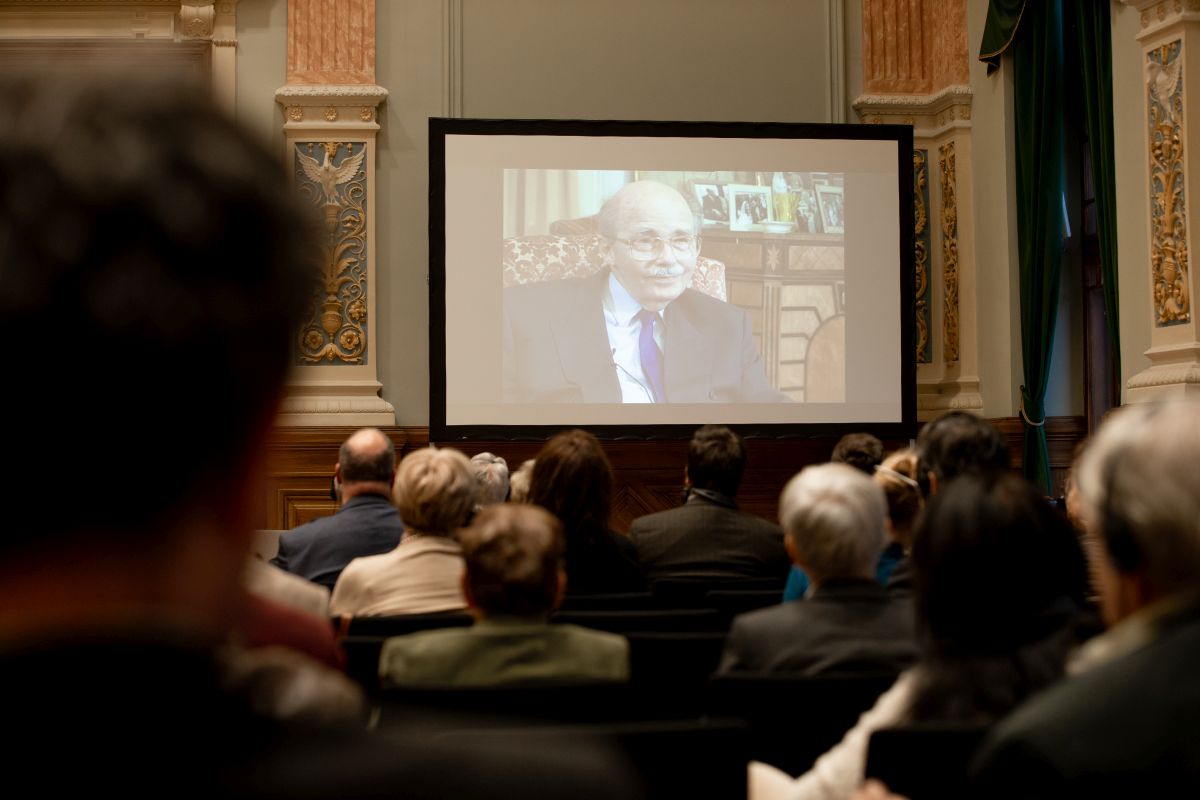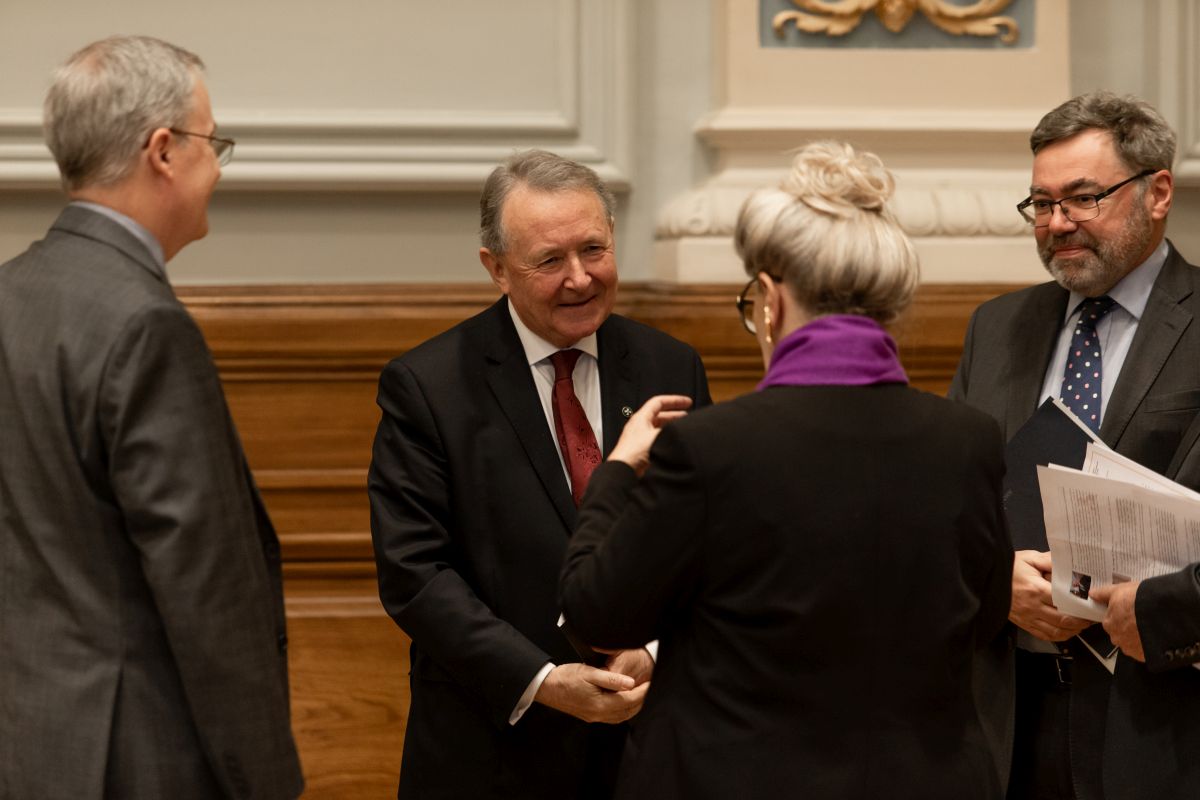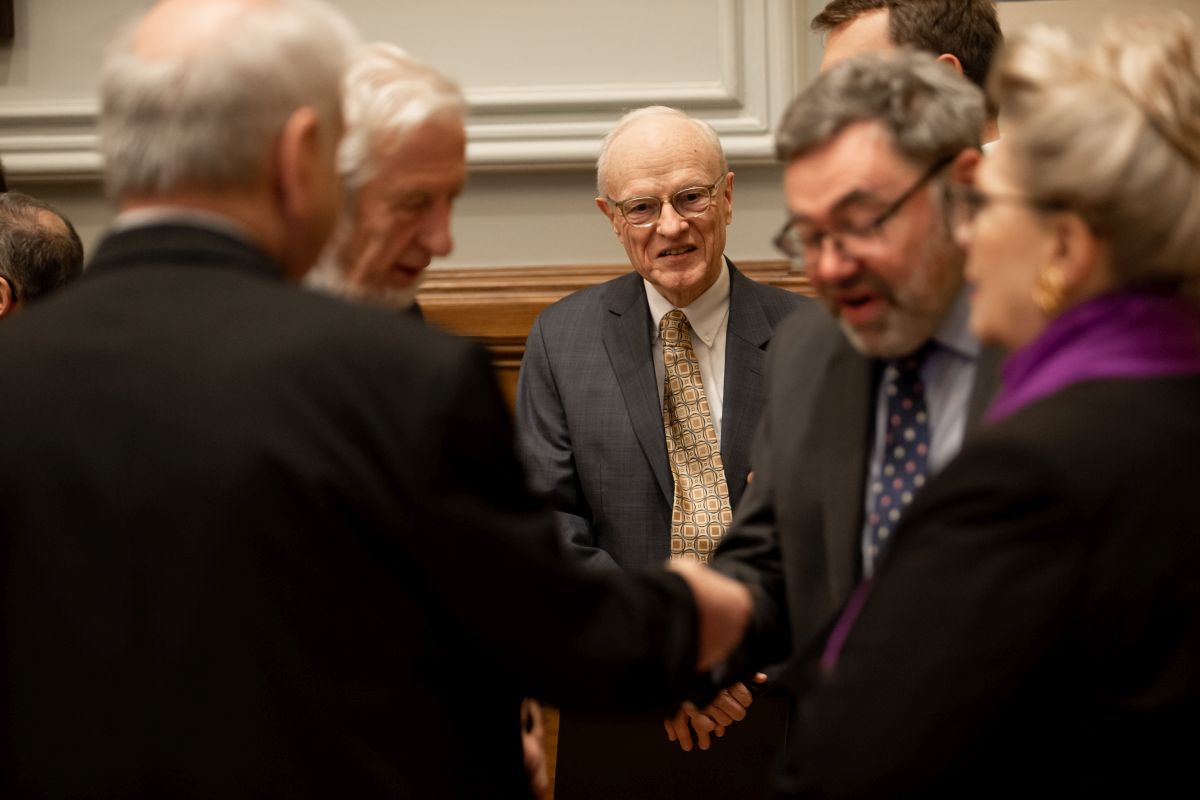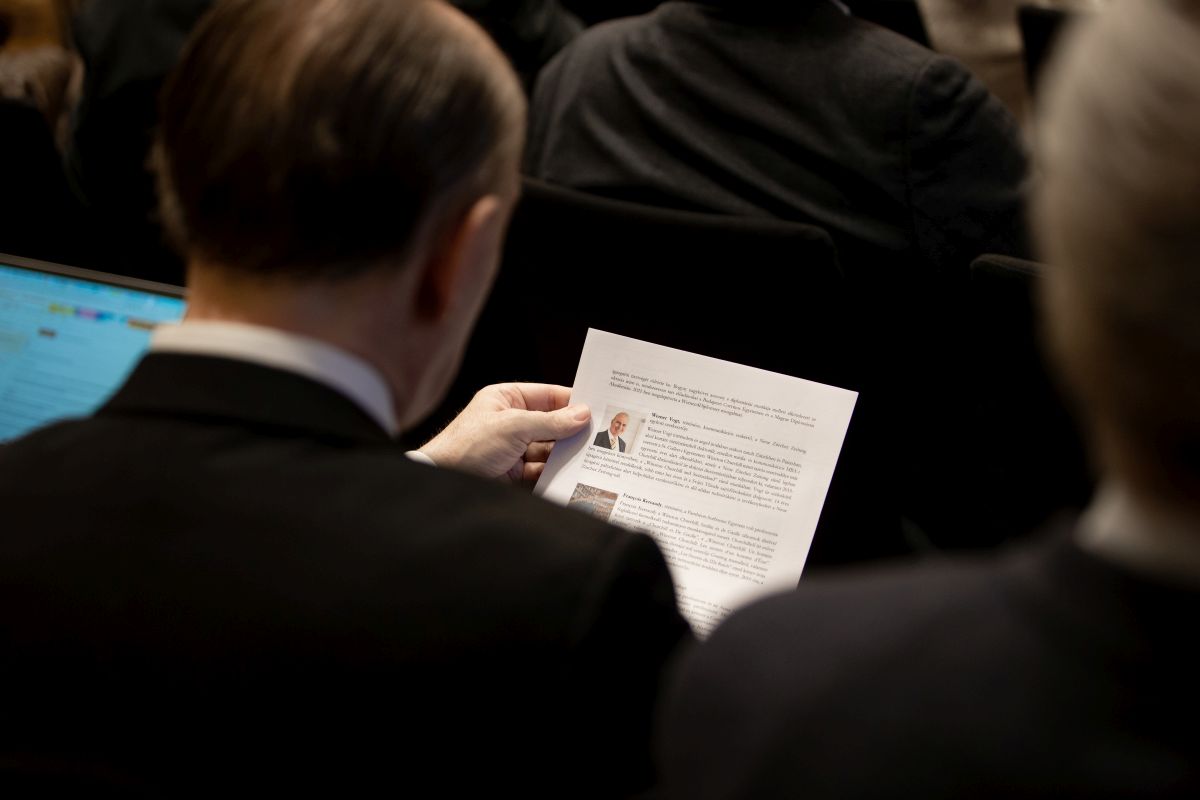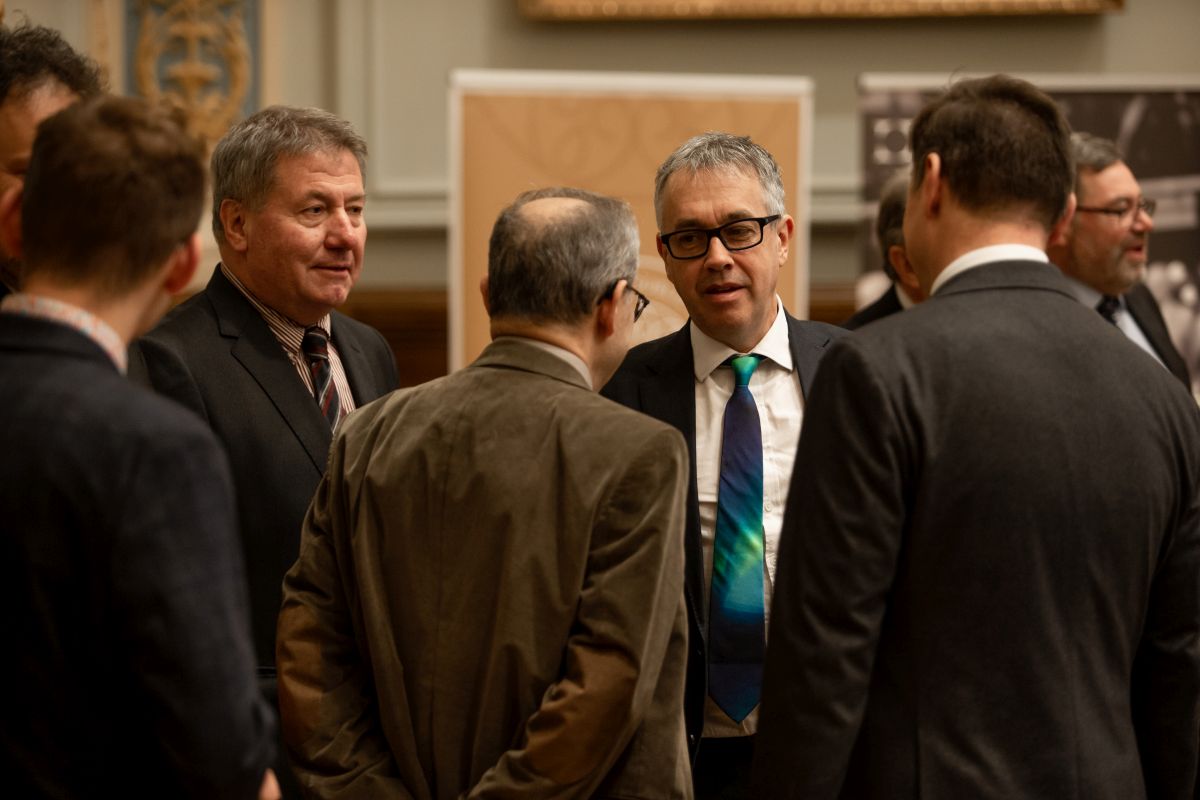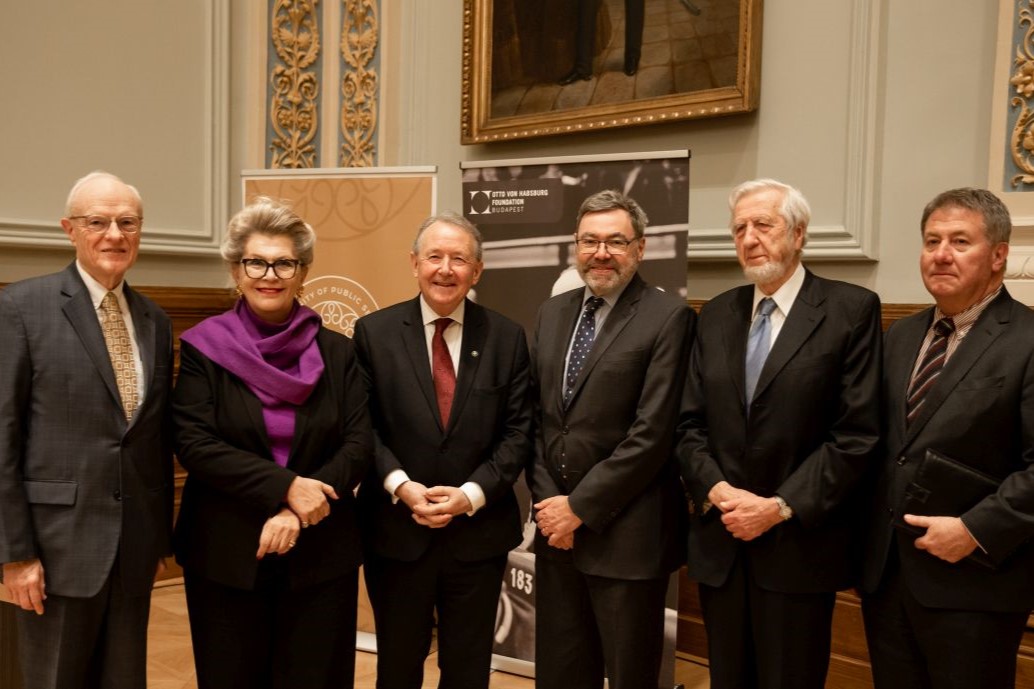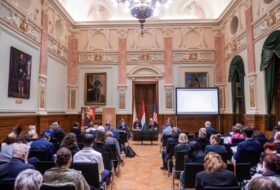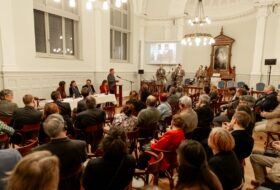With the participation of distinguished Anglo-Saxon guests, we held a conference entitled “Polyhistors in World Politics — Winston Churchill 150” on 22 November 2024. Paul Fox, His Majesty’s Ambassador to Hungary, welcomed the audience in the Széchenyi Ceremonial Hall of the Ludovika University of Public Service. Outlining the most significant milestones in his eventful career, the diplomat recalled that Churchill, considered by posterity as the greatest British politician and man, was a bewilderingly versatile personality who, in 1940, with a military, journalistic, historical and political background, was confronted by his true vocation, which was perhaps the greatest challenge of the 20th century. Possibly, no one at that moment could have a combination of personality traits—skills and abilities, ambition and intuition, a vision of history, political instinct and experience—been more successfully brought together to meet the challenge than he was. Yet the message of his stance is not the requisite of a bygone era but remains painfully relevant today: the war raging once again on European soil 85 years later calls for the democratic forces to unite once again.
Gergely Prőhle, Director of the Otto von Habsburg Foundation, described the encounters between our namesake and the British Prime Minister. He evoked their conversation in Quebec in 1944, when Churchill, analysing the issues of the post-war European settlement, referred to the security of the seaport of Trieste as a cardinal point of British world politics and the key issue on the road to India. His observation only reinforced the respect that the last Hungarian Crown Prince had already had for him: only those politicians who knew both history and geography were considered serious statesmen by Otto. Their subsequent interactions are evidenced by a two-volume autograph biography of the Duke of Marlborough, which the former prime minister —who was to retake office in the same year—sent as a present to Otto and Regina on the occasion of their wedding in May 1951. As Programme Director of the John Lukacs Institute, Prőhle drew the audience’s attention to two artefacts: a Churchill bust that stood on Lukacs’ desk and a cigar sent by the former prime minister’s daughter to the author of several works on his father, both of which arrived in Budapest among the Hungarian-American historian’s personal belongings and are on display at the Ludovika University of Public Service.
In his opening address, Lord David Alton of Liverpool, a member of the House of Lords, compared Winston Churchill’s worldview with that of Otto von Habsburg. Both carried historic names, influencing the destinies of their families, homelands and, on occasion, the continent—and, in Otto’s case, perhaps the whole known world at the time. Then, at the dawn of the 20th century, they witnessed the fall of empires, the rise of autocratic regimes and the ascent of totalitarian ideologies and powers—all of which they resolutely opposed. The Habsburg dynasty descended from the Danubian monarchy on the principle of “live and let live”, which for centuries ensured the peaceful coexistence of peoples, minorities, ethnic groups, languages and cultures under the crown, thus achieving a brilliant variety of diversities. At the same time, the English aristocrat was the heir to a tradition of parliamentary democracy that could balance world politics. In 1946, on behalf of the victorious British, he assessed the post-World War I settlement: “If the Allies at the peace table at Versailles had allowed a Hohenzollern, a Wittelsbach and a Habsburg to return to their thrones, there would have been no Hitler.”
National Socialism was threatening both of them personally. Having survived the Great War’s cataclysm and seen the continent’s moral-physical destruction, they were motivated by similar considerations to embrace the notion of a common Europe. It is true that, although Churchill supported the idea of a Danube federation and considered the creation of common European institutions—the Council of Europe, the European Court of Human Rights, not least a common military force— essential, he remained an Atlanticist as a Briton: he never ceased to emphasise the ties to the United States and observed with concern the isolationist tendencies overseas. He remained faithful to his words about European politics written in the 1930s: “We are with Europe, but not of it.” He believed a nation could only be sustained by a society built on the rule of law from within and a strong federal system from without.
Although Churchill ascribed a purely moral importance to Christian doctrine and did not acknowledge its transcendent nature, he appreciated Otto von Habsburg’s defence of the Christian faith. Throughout his career, he never wavered in his emphasis on the dominant Christian roots of Europe and his acceptance of the principle that democracy was rooted in Christianity. The speaker suggested it might be time to combine the British politician’s vision of the nation-state with the former heir to the throne’s proposal for a Christian renewal of Europe. A political programme that would provide guidance on the challenges of our time while helping the British people find their place in Europe’s future.
George H. Nash spoke about Churchill’s reception and influence in America. The Russell Kirk Center for Cultural Renewal’s Senior Fellow began his lecture with an impressive list of figures: the politician wrote around three dozen volumes, and his unpublished collection of speeches runs to 10,000 pages. More than a thousand books have been written about his career, and the number of published studies and articles on him is incalculable. Apart from his public achievements, his unbroken popularity is likely to depend on the fact that he seized every opportunity from his youth to express his admiration for his mother’s country.
He began by assessing Churchill’s reception in the US in the 1930s: in the early days, his image was shaped not by his activities in the mother country—his bad decisions in the First World War and his domestic political party battles—but by his lecture tours. However, in May 1940, everything changed. As J. F. Kennedy later remarked, Churchill “mobilised the English language and sent it into battle” for victory, and this had a powerful effect overseas through radio, which, by their admission, impressed both Richard Nixon and Caspar Weinberger (Ronald Reagan’s former Secretary of War). This belief in his truth is reflected in the 2 million (!) words of the former Prime Minister’s World War II memoirs and the lines of his History of the English-Speaking Peoples. The affection was mutual: in 1963, the United States made him an honorary citizen of the United States. In his obituary, Russell Kirk, the father of American conservatism, called him “an aristocrat of genius”. In the post-war era, his image has taken on a new light: his Fulton speech in March 1946 made him appear as a prophet. His influence was decisive for a succession of US presidents: in addition to Kennedy, Ronald Reagan and George W. Bush have paid tribute to his memory.
His posthumous legacy is, at least in part, institutionalised: the eight volumes of his monumental biography of his son Randolph Churchill and Martin Gilbert are the most extensive biography ever written; the spotlight on his work is kept by an international society, a journal and the Churchill Project, run by Hillsdale College. However, his ‘statue’ has also been tarnished by the ideologies in vogue today—labelled racist, egotistical, imperialist, and blamed on the (far) right for not agreeing with Hitler in 1940.
Historian Géza Jeszenszky has traced the British Prime Minister’s policy towards Central Europe over the decades. The region’s nations remember Churchill primarily for his actions during the Second World War and his role in the subsequent settlement, while Jeszenszky’s presentation provided a much broader background, noting the influence of his Hungarian-born childhood friend Leo Amery, who had a decisive impact on the politician’s views on the Balkans and the Danube Basin.
In the 1920s and 1930s, Churchill, who considered the Versailles peace treaties unjust and therefore dangerous, kept in constant touch with the region’s events; he was familiar with ethno-religious affairs, maintained contact with pro-Western public figures in the area—in the summer of 1939 he made the guidelines of British foreign policy clear to Pál Auer and Tibor Eckhardt, who visited him—and understood the geopolitical significance of the Danube basin in relation to the Black Sea. However, he was unable to override the military situation that had developed in the second half of 1944, including the Transylvanian issue, by diplomatic means. As a retired prime minister, all he could do was to announce the idea of a United States of Europe in his speech in Zurich on 19 September 1946, in which Central Europe could also have a place.
Churchill’s foremost French ally during the war was Charles de Gaulle, who refused to negotiate with the Germans from the outset—whom the British prime minister described as “a fighting man of great valour, a man of reputation and a strong personality”. François Kersaudy, a former professor at the Panthéon-Sorbonne University, lectured on their turbulent relationship. To strengthen the alliance against the Germans, Churchill did everything the media of the time could to ensure that the soon-to-be-legendary general could rally his compatriots behind him. This was facilitated by the fact that, over time, he found in De Gaulle an increasing number of affinities: his great erudition, his extensive knowledge of history, his remarkable capacity to express himself in his mother tongue, his visceral rejection of totalitarian regimes, his almost unlimited faith in his ability to set things in motion, his idealistic and patriotic qualities, reinforced by an unyielding moral and physical courage. Indeed, he needed all his sympathy, for De Gaulle had already made it clear to him in 1941 that he would not tolerate a subordinate role, either in the judgement of the Vichy regime or in the fate of Syria and Lebanon, or of Madagascar and North Africa. In the end, no confrontation occurred, as Churchill himself admitted, reluctantly but grudgingly, that ‘A great man? Why – a self-centred, arrogant man who fancies himself the centre of the universe… He… Well, he’s right. He is indeed a great man.” Of course, De Gaulle was not subtle either: “Churchill sees me as a piece of furniture, a piece of furniture which he occasionally bumps into, but which is now part of the set and can no longer be removed.”
1945 brought a new era in both their lives, but their interest in each other’s deeds proves that their names were forever linked by their shared ordeal.
John Lukacs’ biographer, Professor Richard Gamble, analysed Lukacs’ image of Churchill. The historian posted a note in January 1965 after attending the British Prime Minister’s funeral with his son. The photograph was taken in Newfoundland in August 1941 and depicts Churchill sailing towards Britain shortly after the signing of the Atlantic Charter with President Roosevelt. In his delicately drawn psychological portrait, the Hillsdale College professor sought to answer the question of what this gesture, this stand, meant to his own nation, to Europe, to Central Europe, to Hungary and to the writer himself – a gesture that Lukacs then sought to reciprocate in newspaper articles, interviews, studies, reviews and half a dozen books. “History is not a record of life but life itself: because we are neither human animals nor perpetual slaves. In the long and slow and sad music of humanity he once sounded an English and noble note which some of us were blessed to receive and to remember.”
The conference sessions concluded with round table discussions moderated by diplomat Katalin Bogyay and former BBC editor David Campanale.
Photos by Zoltán Szabó
